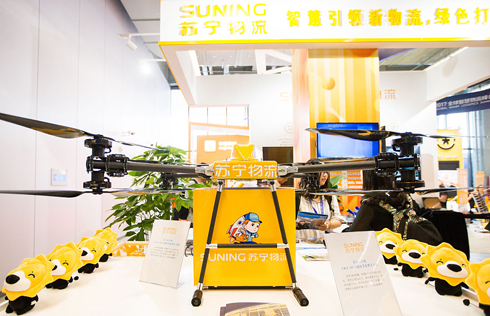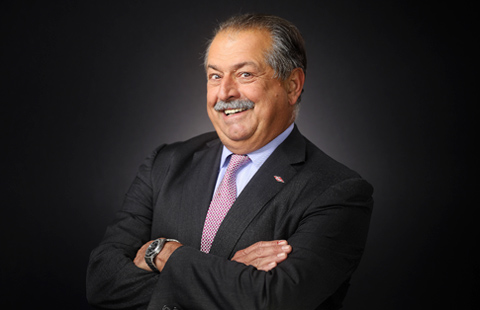PowerChina sets up HQ in Istanbul to tap Eurasian marketen
 |
|
The Power Construction Corporation of China on?May 23?marked the opening of its Eurasia headquarters in Istanbul in efforts to further integrate into the Eurasian market. [Photo/Xinhua] |
ISTANBUL - The Power Construction Corporation of China on Tuesday marked the opening of its Eurasia headquarters in Istanbul in efforts to further integrate into the Eurasian market.
Addressing the inauguration ceremony, Wang Bin, the vice president of the corporation, also known as PowerChina, spoke of Turkey's unique geographical location and voiced confidence of his corporation in infrastructure development and economic growth in the Eurasian countries.
He said PowerChina is delivering on the Chinese government's wish to bring mutual benefit and win-win opportunities to countries along the Belt and Road by basing its regional headquarters in Istanbul.
PowerChina Eurasia covers 63 countries in South and Central Asia, Transcaucasia, Europe and other regions, most of which are along the Belt and Road, an initiative proposed by China to build a trade and infrastructure network connecting Asia with Europe and Africa along the ancient Silk Road trade routes.
Chen Su, the acting Chinese consul general, referred to the fact that economic and trade cooperation between China and Turkey have been playing a more prominent role in facilitating bilateral ties, as bilateral trade volume hit 27.9 billion U.S. dollars as of 2016, and China has signed contracts with Turkey worth 18.02 billion dollars and made direct non-financial investment of 1.37 billion dollars.
Ismail Gultekin, a deputy governor of Istanbul, said China has changed both its own region and the whole world with its projects and moves.
"It is very pleasing that Chinese companies have come to Turkey in recent years," he remarked, pledging "all kinds of support" to workers of PowerChina and all other Chinese citizens.
PowerChina, a leader in China's hydropower industry that was ranked 200th in Fortune's Global 500 in 2016, divided its country markets worldwide into six regions and has set up six regional headquarters for better management of its 259 overseas branches in 103 countries.
Under the corporation's strategic development plan, the regional headquarters shall be gradually built to be regional group companies.

























